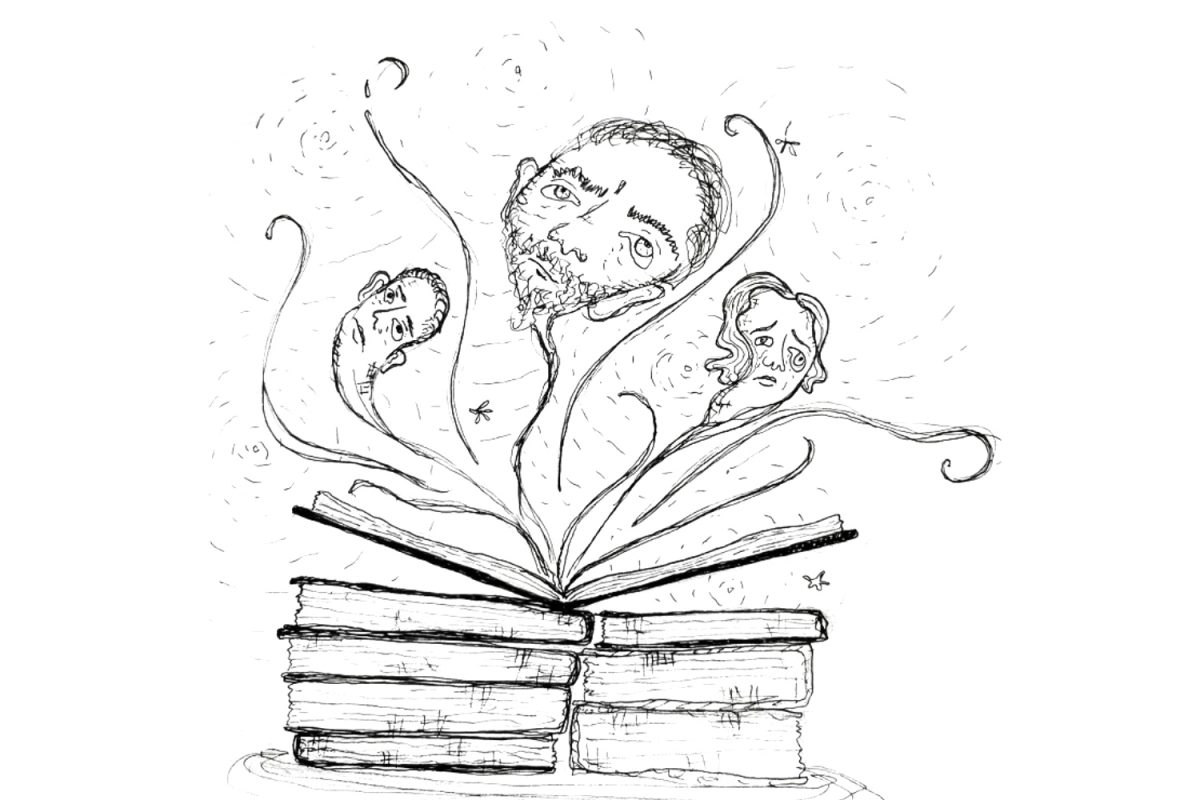Nobody’s perfect, and nowhere is that old adage more true than in the hallowed halls of our academic canon.
In a sociology class earlier this semester, my professor supplemented a point he made by mentioning a book by Harvard psychologist Steven Pinker. With a wave of his hand, he remarked that Pinker “isn’t always right” but is “a smart, respectable guy.”
As someone familiar with Pinker’s ideas, I take issue with that assertion.
While Pinker is widely respected for his work, his reputation is far from spotless. Most notable is his well-documented association with Jeffrey Epstein, including aid rendered to the disgraced socialite’s legal defense.
Around the same time, Pinker wrote a letter in support of fellow psychologist Colin McGinn after Mcginn was accused of sexually harassing one of his graduate students.
In the letter, Pinker argues not that McGinn is innocent, but that the punishment was excessive and that ending McGinn’s tenure at Miami over the incident would harm the university’s academic credibility.
Pinker has also been cited as a member of the “intellectual dark web,” a collective of academics and media personalities who oppose issues like transgender rights and what they see as “cancel culture” in academia, according to a May 8, 2018 New York Times article.
Quite a lot to handwave with “he isn’t always right.”
The University of Vermont’s mission is “to create, evaluate, share and apply knowledge and to prepare students to be accountable leaders who will bring to their work […] an enduring commitment to learning and ethical conduct.”
By declining to have these sorts of conversations about the people whose work we teach, we run the risk of failing in that mission.
In my American poetry class, our professor showed us a side of Walt Whitman that often goes unmentioned in surveys of his work.
A trailblazing queer poet, Whitman is usually taught as a universally progressive thinker, but held many of the same racist beliefs as most white men in the 19th century, according to an April 17, 2019 JSTOR Daily article.
I was heartened by the fact that our professor chose to have this conversation. In high school, we weren’t taught this during our discussion of Whitman’s work, and I think giving students a false impression of a thinker’s character is doing them a disservice.
I’m not arguing that Whitman shouldn’t be taught. You simply cannot teach American poetry without teaching Walt Whitman.
Conversely, if we’re judging Whitman by the standards of his time, we should apply the same contextualization to every person whose work we teach.
And if we’re judging Pinker by the standards of his time, which is now, it becomes clear that greater care is needed when discussing his work than a simple “he isn’t always right.”
Larry Rudiger, UVM psychology professor and former research psychologist, said that working in research and attending conferences has exposed him firsthand to this issue.
“I’d go to conferences and I’d see people like [Charles] Murray give talks. I’ve been close to controversial ideas that have been taken up in problematic uses,” Rudiger said. “[Murray] never got anything through peer review with regards to his beliefs on race science.”
Rudiger also gave his opinion that despite the objectionable nature of Murray’s work, having it out there was ultimately a boon to the field because other researchers were motivated to disprove it and do better work.
“This is a judgment call for teachers: how much context is helpful?” Rudiger said. “You get bogged down there, and we can’t focus on the work itself. But ignoring the context is a way of slipping in ideas that should not be there.”
As Rudiger cautioned, there’s always the possibility of overcorrecting too much in the other direction.
Author Len Gutkin proposes that there’s a space in academia for reactions, but that people have gone from being uncomfortable with ideas to believing that ideas can be an act of violence in a Feb. 5 column in The Chronicle of Higher Education.
The end result, Gutkin observes, is often to stop the conversation, which is no way to go about things.
I oppose the total censorship of a person’s ideas. I don’t think that’s how academic institutions should be run.
We need to be able to discuss people like Walt Whitman and Steven Pinker to teach courses on poetry and social psychology. But we’re also doing our students a great disservice by omitting context.
“I would hope that students feel empowered to investigate knowing that there’s a lot of stuff out there, but I would hope that students do feel like that’s part of being a student, that it is for me to decide,” Rudiger said.
We owe it to students to give them a complete picture of the people whose work they are learning, so that they can participate fully and honestly in academia.













